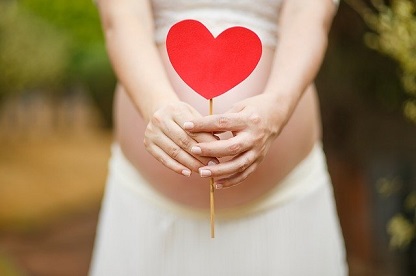Pregnancy Treats Endometriosis? Is This Statement Reliable?
Generally speaking, pregnancy cannot treat endometriosis. However, after pregnancy, the condition of endometriosis will be relieved and improved to a certain extent. After a woman becomes pregnant, estrogen levels will drop, and menstruation will stop, so the endometrium and ectopic growth of endometrial cells will shrink to a certain extent.

The primary pathogenesis of endometriosis is estrogen dependence. When the ectopic endometrium is affected by estrogen, it can promote the growth of the ectopic endometrium and may also cause exfoliation bleeding and other manifestations. When endometriosis occurs, most women may experience lower abdominal pain, dysmenorrhea, and abnormal menstruation. They may also cause clinical symptoms such as constipation, blood in the stool, painful defecation, dysuria, and low back pain.
A common method for treating endometriosis now is pseudopregnancy therapy, which uses progesterone to keep the endometrium in a closed state, which transforms the endometrium to no longer exist so long, making it every Monthly updates and monthly shedding. In this way, she will achieve relief and even some permanent relief. Since false pregnancy therapy can be used, a real pregnancy can also accomplish a relief effect.
However, some women experience cyclical fluctuations of hormones in their bodies after giving birth, and endometriosis may occur again, so pregnancy treatment is not recommended.
For women with endometriosis, it is recommended to use the appropriate method for treatment according to the doctor's advice and to prepare for pregnancy after the treatment is completed. Pregnant women without treatment can go to the hospital for regular check-ups. If endometriosis recurs after delivery, they can be treated according to the doctor's recommendation.
Endometriosis treatment aims to reduce and eliminate lesions, relieve and relieve pain, improve and promote fertility, and lower and avoid recurrence. Factors that should be considered in treatment are age, reproductive requirements, the severity of symptoms, the extent of lesions, previous treatment, and patient preference. The treatment measures should be standardized and individualized. The treatment of pelvic pain and pelvic mass during infertility should be treated separately. The treatment methods include surgical, drug, interventional, and assisted reproductive medicine.
For young women or women who need to preserve fertility, the first choice is to use drugs for treatment in strict accordance with doctor's orders. Fuyan Pill can eliminate pathological changes in gynecological tissues, regulate menstruation, eliminate pain, etc. It can treat female infertility caused by gynecological diseases and inflammation. Fuyan pills can play a role in various conditions and can cure endometriosis very well! Second, conservative surgery can also be used to remove visible lesions and ovarian endometriosis cysts as much as possible.
For those who are older, have no fertility requirements, have severe symptoms, and are ineffective in multiple treatments, radical surgery can be used to remove the lesions.
During treatment, patients must pay more attention to rest and ensure adequate sleep. In daily life, it is recommended that women exercise correctly to enhance their physique and improve their disease resistance. Medication should also be administered strictly following the doctor's orders.
Endometriosis is a chronic and relapsing disease, and patients should do long-term management to reduce the recurrence rate. Regardless of conservative or surgical treatment, it is recommended that patients become pregnant as soon as possible or use drugs as prescribed to reduce recurrence.
Precaution:
Preventing menstrual backflow: Patients should promptly detect and treat diseases that cause menstrual blood retention, such as congenital obstructive genital tract malformations, secondary cervical adhesions, and vaginal stenosis.
Drug contraception: Oral contraceptives can inhibit ovulation, promote endometrial atrophy, and reduce the risk of endometriosis, and are an option for women with a high-risk family history.
Prevention of iatrogenic ectopic endometrial implantation: Women should take contraceptive measures and avoid multiple uterine operations.
You may also be interested in:
Periods with Endometriosis: Can Your Cycle Change?
previous pageBirth Control Pills for Endometriosis: Can women Take Them for a Long Time?
next page
You may also be interested in
- Endometriosis and Debilitating Bowel & Bladder Pain: Diagnosis, Treatments, and Hope for Relief
- Struggling with Endometriosis Symptoms? Proven Back Pain and Painful Sex Relief Options
- Severe Endometriosis Treatment: Chronic Pelvic Pain Relief and Infertility Solutions
- New Endometriosis Pill Approved on NHS: What This Means for Patients and the Role of Traditional Chinese Medicine
- Can Endometriosis Be Endured Until Menopause?
Testimonials
- Adenomyosis with Ureaplasma Urealyticum Cured by Fuyan Pill
- Tubal blockage with hydrosalpinx can be cured by TCM shortly
- Fuyan Pill Helps A woman with Adenomyosis Get Pregnant
- A Woman with Hydrosalpinx Is Cured with Fuyan pill
- Pelvic Inflammatory Disease Testimonials
- Irregular Vaginal Bleeding and Endometrial Thickening Cured by Fuyan Pill
- Pruritus Vulvae and Frequent Urination: Mycoplasma Infection Cured after 2 Courses



